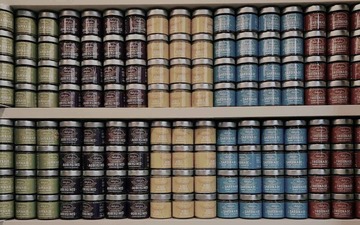-
Mindset matters more than where you go.
-
Who you go with matters more than where you go.
-
After seeing each other for a few months, many new couples take a short trip, which often ends in an apocalyptic, relationship-destroying fight. My theory is that’s the trip working as designed—couples do these trips out of an instinctual desire to stress-test their relationships.
-
There’s not much point in packing light unless everyone is packing light.
-
Some people have a weird anxiety about tourism— “I’m a traveller, not a tourist” or whatever. Don’t be like that.
-
Cultures vary in lots of arbitrary ways—how loud to talk, how (or if) to wait in line, how close to stand to other people, how to behave when you walk into a shop, how to smell, when you can blow your nose, etc. It’s good to be aware of these both as a producer of behavior (not offending others) and a consumer of behavior (not being offended when you’re not “supposed” to be).
-
Different places have different “rules” like if you’re supposed to order drinks before or after food, when you can drink which kinds of coffee, or if you’re allowed (or encouraged) to slurp when eating noodles. After seeing all these variations, it’s hard not to see them as silly, but life is short and I suggest you mostly just conform.
-
When there’s a language barrier, non-verbal information (tone, gestures, body language, clothes) plays an increased role in others’ judgements of you.
-
Consider dressing slightly better than you normally do.
-
Some places sell “travel” clothes, e.g. “travel” pants made of quick-drying nylon with zippers so the pants can convert to shorts. While I maintain you should fly your flag high, I also really, really, really think you might be more comfortable if you weren’t wearing these.
-
You can wash clothes in the sink. I think basically everyone does this but doesn’t talk about it?
-
Clothes dry much faster with body heat.
-
A restaurant in some out-of-the-way neighborhood will likely pursue a make customers happy strategy. But a cafe across the street from the Colosseum will probably use a get people in the door strategy—no matter how good the food is, most people will never come back, so resources invested in making them happy after they’ve committed to pay are “wasted”. Don’t blame them, blame the remorseless market forces they’re trying to survive under.
-
A place that has staff trying to flag down people walking past is almost certainly pursuing a get people in the door strategy.
-
A place that looks unappealing but has lots of customers is probably good along some dimension (food, atmosphere, price, location).
-
Locals might love a place even though much of the food is mediocre because some is really good and they know what to order.
-
Dishes vary in quality more than people vary in their preferences!
-
There’s also the get good ratings online strategy. When looking at reviews, consider (1) sorting by new, (2) looking at the pictures (I told you this would be obvious), (3) possibly—umm—possibly taking the ethnicity of reviewers into account, and (4) if one reviewer is really swaying you, checking out their history to calibrate for how effusive they tend to be.
-
In some cities (New York), online ratings are unnervingly accurate while in other cities (Paris) they seem completely random. I don’t understand this. (I find inaccurate ratings frustrating and accurate ratings dehumanizing.)
-
Travel isn’t always fun. Obviously, planes and airports aren’t fun. But just being in a foreign place is often kinda alienating. So don’t expect constant fun.
-
Fun gets old surprisingly quickly.
-
If you spend a ton of money and stay in very expensive hotels and whatever, you can eliminate almost all of the frustration and uncertainty of travel. But it also feels like you never leave the global capitalist monoculture.
-
Despite being only 0.3% of the world’s population, Australians seem to make up 10% of overseas visitors everywhere on the planet. Do not be disturbed by this well-known optical illusion.
-
Don’t be bullied. If you arrive at a hotel and an employee grabs your bag out of the taxi and carries it to the front desk without asking you, you should feel zero obligation to tip. They know exactly what they’re doing.
-
If you like isolated beaches or hikes, get up early.
-
In touristy places there are often nature things (hikes, beaches, views) that make it into guidebooks and become insanely crowded while there are almost equivalent things nearby that are nearly empty.
-
When it’s windy, beach umbrellas are dangerous. Most people don’t know this and have no idea how to secure an umbrella. Avoid being downwind if you can.
-
The human, after drinking liquids, must pee. So if you’re about to go somewhere where peeing is impossible, maybe don’t drink a lot of liquids.
-
Get some tiny bags (I like paper foil resealable bags), and put a few painkillers, antihistamines, decongestants, activated charcoal, etc. in one. Put some bandages in another. Keep them with you and be a hero.
-
Time seems to speed up as you get older. And you wonder—is it biological, or is it because life had more novelty when you were a child? Travel partly answers this question—with more novelty, time slows way down again.
-
My favorite part of of travel is the perspective it gives on “regular” life. Why do I live the way I do? Is the stuff I do for work what I want to be doing? Should I blog about a “topic” instead of whatever shiny object last caught my eye? These thoughts seem healthy but also… not particularly related to traveling? If you designed an experience to create this kind of perspective, what would that look like?
-
Brutal week-long backpacking/camping trips are amazing for helping you appreciate modern wonders like roofs and beds and stoves and showers and toilets, but this appreciation seems impossible without deprivation, and at least for me the half-life of improved appreciation is short enough that I’m pretty sure I end up behind on net.
-
If in doubt, assume people would rather hear less about your trips.
-
Though, people may like to hear about your visit to their hometown. And places you’ve both visited are top five on the list of reliable conversation topics. (Number one on said list: pets.)
-
The world needs a theory for why some countries watch foreign-language movies with dubbing vs. subtitles. The overall trend seems to be that larger countries more often favor dubbing—perhaps because they can amortize the cost over a larger audience? But there are many exceptions and in the Anglosphere, dubbing is regarded as a horror that destroys all cultural authenticity. Why? Maybe because Portrait de la jeune fille en feu has more authenticity to destroy than Transformers: Rise of the Beasts?
-
Buses have much more interesting views than subways.
-
You can’t beat jet lag—you can only really adjust an hour or two per day. I prioritize being functional so when possible I just live on weird hours for a few days after changing time zones. It’s interesting to get up and take a walk at 4:30 AM.
-
If you have to do something really important right after traveling (like a job interview or getting married) you can “pre-adjust” your schedule before leaving. If that’s not an option, you might actually be in better shape on the first day than the second due to having more “residual health”.
-
You’re really, really better off not drinking alcohol on long flights. It screws with your sleep when your sleep least needs to be screwed with.
-
Most people incorrectly prefer aisle seats to window seats. They’re sure to discover their error sooner or later, but in the meantime, use it to your advantage.
-
Many of the people who seem “best” at travel seem to be really good at having sensory experiences—at shutting down the internal dialog and letting the sights and sounds and smells wash over them. I am by nature horrendous at having sensory experiences, but if I make a conscious choice, then it’s pretty easy and often quite profound.
-
Don’t confuse scarcity with value. A really good afternoon in the park (a really good one) is maybe about as good as it gets.
-
Travel reveals the value of stability, roots, routine, community, relationships, and cooking at home.
Jun 2024

(or at least work better)
In ancient India, there was a long-running feud between the Pandavas and the Kauravas. Duryodhana, leader of the Kauravas, planned a huge war to end things forever. Krishna warned that this would lead to the total destruction of both sides...

Don't get distracted.
A friend has spent the last three years hounding me about seed oils. Every time I thought I was safe, he’d wait a couple months and renew his attack: “When are you going to write about seed oils?”

thoughts on tubes
Colonoscopies are the first-line method for preventing colorectal cancer in America —and almost nowhere else. But do they work? We finally have a comprehensive trial, but it’s left gastroenterologists with more questions than answers.

Less automation and less agony
Reading a book one night, you decide to turn on the lights. And suddenly it’s obvious. Hauling your body across the room just to flip a switch is absurd. So you decide to get smart lights. Two hours later, your...

On game trees and reasonableness
I don’t sense that I’m viewed as particularly skilled at human interaction. Still, some poor fools sometimes ask me for advice, and I find myself repeating the same little speech. For context, in life as a human you will often...

There's a little accountant named Jim that lives in my head
Nobody gets everything they want in life. That's OK. If everyone was a sportscaster-rockstar-scientist-model-author-influencer-billionaire, we still wouldn't be happy because everyone else would be too busy to be impressed. But still, it's a little sad when you don't at least...

Sometimes weirdness does pay
I’ve always wanted to believe that you could get enormous advantage in life just by willing to be weirder than other people. And when I read about people like Amos Tversky (leave movies early! go jogging in your underwear! throw...

Some obvious-in-retrospect thoughts
When you shift from being managed to also sometimes managing others, you have a predictable shift in perspective and a lot of obvious-in-retrospect insights. In the spirit of “saying obvious things is good” here are a few. Be honest Since...

After decades of research, we now have a huge body of studies and meta-reviews to summarize it. What do they say?
I was wrong about gratitude. I thought it was a guaranteed way to become happier and went around proclaiming we should be thankful because: "Hokey, unfashionable techniques like practicing gratitude turn out to have strong scientific evidence behind them." Sorry...

Tracking my cognitive performance for a year
A year ago, I started playing puzzle storm. This is a short game where you try to rapidly solve as many chess puzzles as you can in a few minutes.

People don't seem to try very hard to make themselves happier. Why not?
Everyone I know is scheming for the future. They've got big goals and get up every day and work like mad to try to achieve them. I've always found something odd about that: Despite all this effort, people don't seem...

Nine observations about what happens when you eat only potatoes
You've probably heard about the potato diet. If not, here it is: 1. Eat potatoes. 2. As many as you want. 3. Oil and salt are OK. 4. Don't eat other stuff. I thought this sounded delightfully absurd so I...

An analogy between coat racks, desire paths, arguing, vacuuming, reading, social media, drinking, vacations, and colonoscopies.
You learn a lot about people from their bedrooms. Some have TVs or books or laptops. Some have blackout curtains or stuffed animals or bottles of pills. But, vast as human experience is, one thing is consistent: Everyone has once-worn...

How much do statins extend lifespan? An analysis based on a meta-analysis of six peer-reviewed papers.
It’s hard to say how much running increases lifespan. To test it, you should take thousands of people, tell half to run, and then follow everyone for years while making sure they follow their instructions. That’s not easy, and even...

We could be a lot better at taking care of ourselves.
Here are some things I'd like to know about how to live my life: 1. If I eat Brussels sprouts for dinner tonight instead of pizza, how much longer do I live (in expectation, in minutes)? 2. What should I...

Why you shouldn't torture yourself when training to run.
I used to think the people I saw running were insane. They were confused about life. Whatever the benefits of running, nothing could justify that much suffering. Runners were cut from a different cloth. They had a strength of will...















